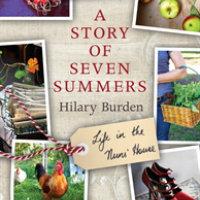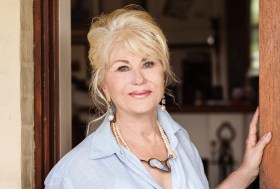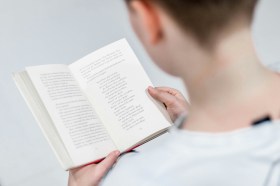Burden’s memoir, A Story of Seven Summers, is a delightful book. She writes about her return to Tasmania, the home state of her childhood, and its profound effect on her life. Along the way, she discovers her empathy for a natural way of living, an organic comprehension of her surroundings: ‘The road itself was lined with an ancient avenue of magnificent gums, some over a hundred feet tall. I compared this new routine, walking under trees older than anyone alive, to my old daily journey home on the no. 74 bus.’
The base urge for humans to connect with the earth and invest in their own survival needs is a well-explored literary theme. In Doctor Zhivago, Pasternak has the doctor recount his summer labours: ‘What happiness to work for yourself and your family… to construct a shelter, to till the soil for the sake of subsistence… You city recluse, whipping up your sagging nerves and imagination with strong black coffee or tobacco, you don’t know the most powerful drug, which consists in unfeigned need and sound health.’ In her journey from Europe to Tasmania, Burden echoes this simple truth.
As Burden’s awareness of her surroundings grows, so does her concern for its preservation. She conveys the tranquil beauty of a fern glade she discovered: ‘I loved the quiet beauty of the roadside, how nothing had been planted, how it seemed to have always been there, and how what looked like scrub from a distance was actually, close up, an exploding galaxy of plants.’ And expresses her anxiety at the encroaching spread of forestry plantation, of the effects of a monoculture, wondering ‘… how would it feel living here at the Nuns’ house then?’
The book is subtitled Life in the Nuns’ House. Through her prose, the house becomes more than a setting, taking on a role of its own. It develops as a major character and shapes the lives of those who stay. Burden writes of the house and its surroundings with a sense of wonder that is primal in its simplicity: ‘The urge is always strong to open a window or a door into the early morning, no matter what the temperature, to smell the dew, the perfume of a new day with the promise of things to be done.’
Burden is a master of her craft, exemplified by her subtle manipulation of tense. As the story moves forward, the tense shifts from past to present, from historic account to contemporary narrative, but the change is so gradual, so gentle, as to occur on a subconscious level.
Her phrases create a sense of presence, allowing the reader to share experiences as if alongside her: ‘The colour spilled out of that first day slowly and it was nearly ten o’clock before the stars came out to play. I took a blanket and lay in the paddock away from the house to view the night sky. Like my smile, those first-night stars were spread from ear to ear.’
A skilled photographer makes an image that tells a story and draws an emotional response from the audience. Burden captures light with words, telling her story and evoking a response beyond their literal meaning. Her descriptions depict scenes with a delicacy and understanding akin to a painter or photographer: ‘The colour itself was everything I liked about a day: like hay or a pale lemon sky, shortbread, oysters or sponge cake mix, or a soft and buttery Armani suit. When I opened a bottle I could smell and taste the yeast. I tried to find the oyster on the palate and the sea spray or rose petal on the nose, and the lingering oak finish. When I popped the cork I loved to see the mist wisp, and curl, then dissipate into thin air like a smoking pistol; I loved how the aroma itself was intoxicating, got right up your nose and lifted you, like a lemon sherbet bomb.’
With 20-odd years of editing and writing experience to draw upon, Burden succeeds in weaving the eclectic threads of her life into a vibrant tapestry. Her mix of anecdotes, recollections, recipes and opinions combine to form a rich and warm account of her first seven summers in the Nuns’ House.
Rating: 5 stars out of 5
A Story of Seven Summers: Life in the Nuns’ House
By Hilary Burden
Paperback, 280 pp, RRP: $29.99
ISBN: 9781742376844
Allen & Unwin






